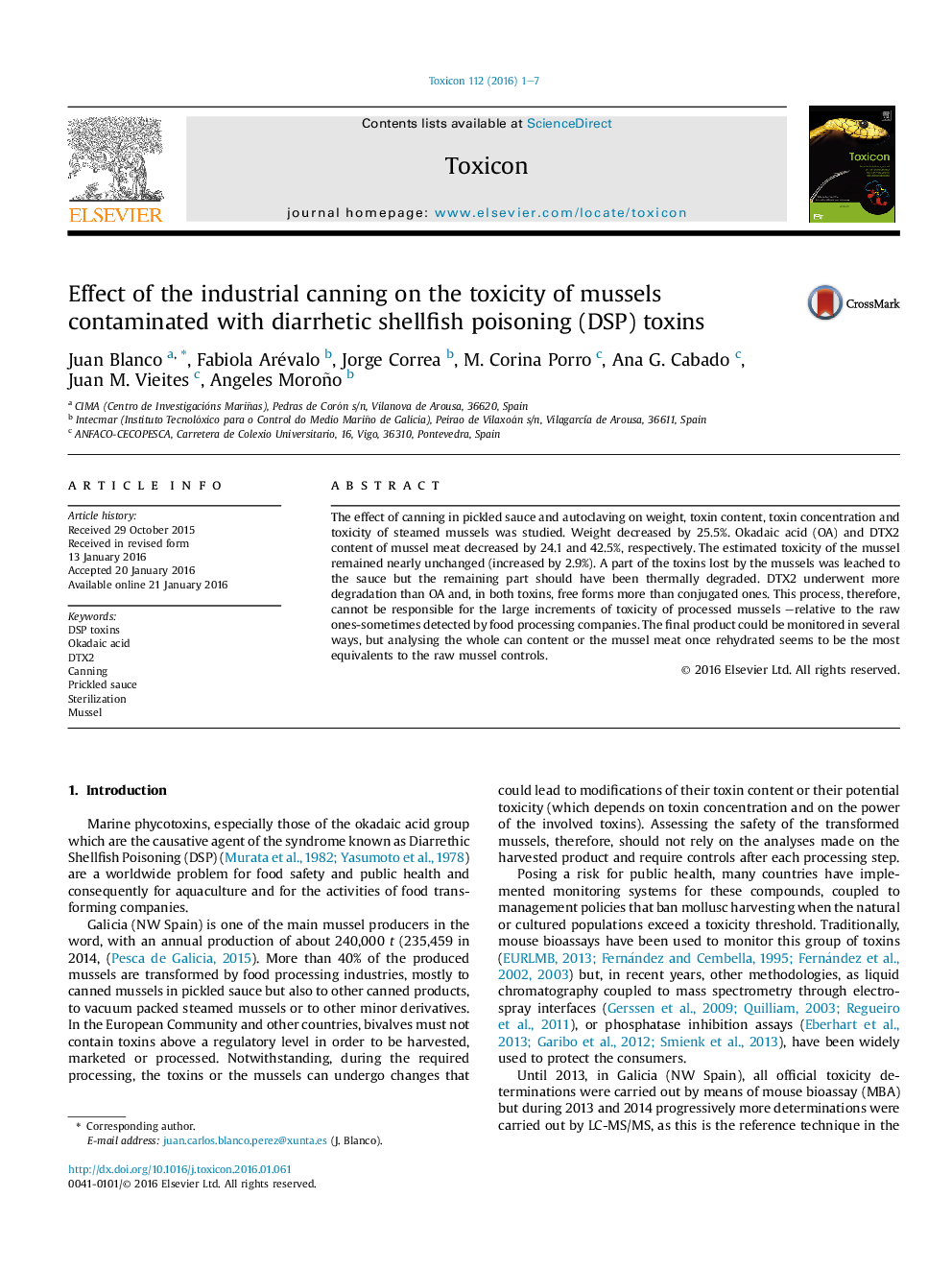| Article ID | Journal | Published Year | Pages | File Type |
|---|---|---|---|---|
| 2064109 | Toxicon | 2016 | 7 Pages |
•Autoclaving mussels in pickled sauce reduces their DSP toxin content.•DSP toxicity of mussels decreases or does not change with autoclaving.•DTX2 amount decreases more than okadaic acid.•Only a small amount of toxin is transferred to sauce during autoclaving.•Analysis of whole can content estimates toxicities close to those in raw mussels.
The effect of canning in pickled sauce and autoclaving on weight, toxin content, toxin concentration and toxicity of steamed mussels was studied. Weight decreased by 25.5%. Okadaic acid (OA) and DTX2 content of mussel meat decreased by 24.1 and 42.5%, respectively. The estimated toxicity of the mussel remained nearly unchanged (increased by 2.9%). A part of the toxins lost by the mussels was leached to the sauce but the remaining part should have been thermally degraded. DTX2 underwent more degradation than OA and, in both toxins, free forms more than conjugated ones. This process, therefore, cannot be responsible for the large increments of toxicity of processed mussels –relative to the raw ones-sometimes detected by food processing companies. The final product could be monitored in several ways, but analysing the whole can content or the mussel meat once rehydrated seems to be the most equivalents to the raw mussel controls.
Graphical abstractFigure optionsDownload full-size imageDownload as PowerPoint slide
